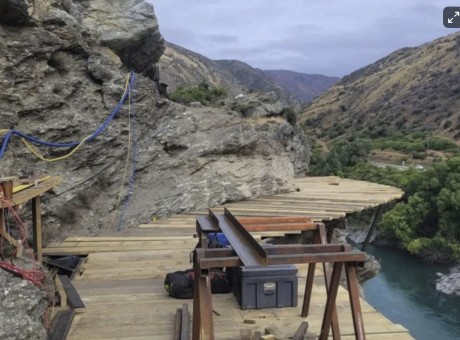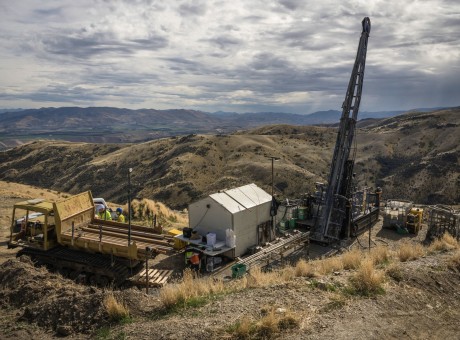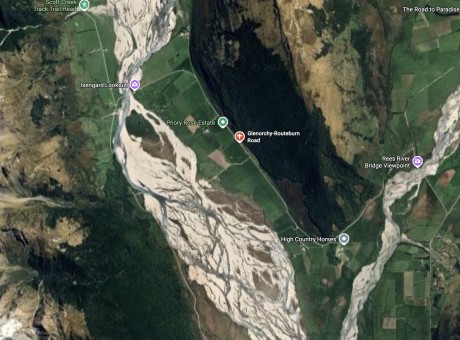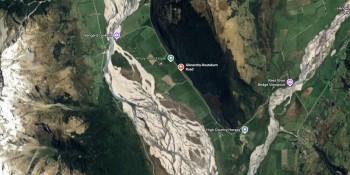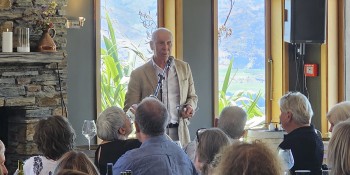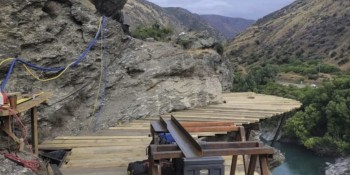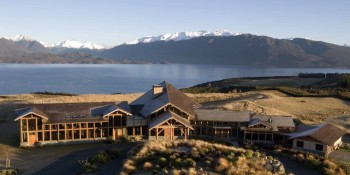The Water Raceman. A Wakatipu cautionary tale.
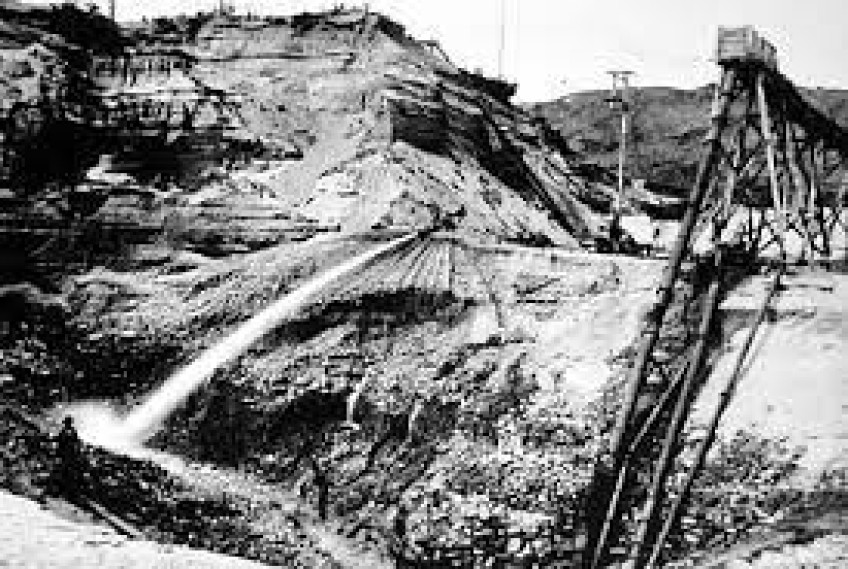
Bruce McLeod is a local surveyor who submitted this short story to Crux as a response to the current development regime. When we asked for his permission to publish this under his own name he said "Go for it! Something needs to change."
Our Wakatipu community history is founded on the smart use of water. The early miners and farmers worked together tirelessly to direct and control water using a network of water races, pipes, valves and flumes. Helped by nature, they created a beautiful place, admired by many.
Sometimes a community would employ a "raceman"1, so named as they were tasked to look after the water race. They would fix any leaks, manage flows and arrange adjustments of the system to suit the community's needs. By experience they became a true expert at managing the water. People would apply to the raceman for water, and the raceman would accommodate the requests where the network allowed, taking into account the supply, pipes and benefits to the community. The applicant might not get all the water they wanted, but the people understood and trusted the raceman to be accommodating while being fair & reasonable. Life was simple, and people were happy.
Eventually the old raceman moved on. They left a somewhat complicated arrangement of pipes, valves and channels to control the water, and the new raceman didn't fully understand the intricacies of the system. That didn't deter the new raceman though, as they had a management degree from a respected tertiary institution , and it was actually pretty easy to control the water by just turning the big valve at the start of the pipe. The system worked well with little effort required, and fixing leaks seemed easy too.
After a time the raceman was approached by members of the community to extend the system. That was a little daunting, so the raceman developed a paper application system which gave the raceman more time to think. Initially that worked quite well, the odd extension was made and people seemed happy enough, even though the raceman still wasn't sure how the water got to where it did.
Soon enough the community wanted more water and the number of applications mounted faster than the raceman could cope. The raceman needed to slow people down further, so demanded more detailed applications. Unfortunately that didn't stop the requests, and so the raceman sought help from a friend in the next valley. This friend was considered pretty clever as they ran a shoelace repair shop, but also had a marketing degree (hard earned from a week long course overseas).
With the help of the friend the raceman arranged an extension to the network supported by recycled shoelaces. In a break from reviewing applications and weaving shoelaces, they put together an even more comprehensive system involving a lengthy array of tick boxes to control the paperwork, and also a very slick brochure on how to make said applications. People were now required to tell the raceman how the water race worked in their applications, which was genius since the raceman had completely lost track of how the system actually functioned. They were very pleased with their hard work, and the raceman didn't have to go outside any more.
A short time later some complaints started to emerge from the community. The raceman wasn't overly accustomed to complaints as everything had been going well enough to this point. In a slight panic, rather than utilize their own management degree, the raceman engaged the shoelace repairer with the hard earned marketing degree to reply to the troublesome complainants. When asked for some funds for a smoke machine and several mirrors that was arranged quickly and without question, as the raceman simply had too many applications to review and no time to care about such matters.
The situation became quite serious. Some people had no water at all. Others had been flooded. A group of concerned people got together and marched on mass to the raceman's hut. "What has happened to the water?" they cried.
The raceman peered up from behind the stack of papers on their desk. "You need an appointment to see me! Did you not read the brochure? You must follow the correct process, no exceptions!", the raceman yelled. "But the water race has burst and the shoelace arrangement has collapsed", the community chimed in return. That didn't sound good at all, but struggling to think the raceman blurted, "You'll need to write me a report". One old miner stood forward and pressed the raceman further, "We haven't seen you outside fixing the water race for weeks". Frustrated and mind in a whirl the raceman rashly retorted "You need to lower your expectations, can you not see I am far too busy for that!", and slammed the door on the community. How dare they question authority.
The raceman kept working away on the applications, but in quite a bad humour. Harbouring a grudge they developed a "request for further information" process. The shoelace repairer from the next valley had another moment of brilliance and suggested a peer review go-round system too. The concept was that applications would be sent back to people a minimum of three times, and if lucky the odd application would fall into an endless loop of self perpetutating return and further review. Combined, both systems worked a treat, and helped speed up the paper shuffle while simultaneously prolonging any decision making to the point of not having to make one at all. The raceman also purchased an "application denied" self-inking stamp and that was quite handy. It was often just easier to say "no", and using it felt oddly powerful at the same time.
After a while the raceman came to the bottom of the application pile. That's strange they thought. That was followed by a second thought, which was unusual in itself since thoughts didn't normally follow each other so quickly, but it did seem a bit quiet in the hut. The raceman went outside and to their horror much of the valley below was a shambles. Part of the main street had been washed away, and further down there was a thick layer of mud inside that annoyingly popular burger shop. One person had erected a rather obnoxious fountain complete with flashing lights, while their neighbour looked to be selling pens to the children watching the fountain, and those pens were emitting great clouds of a weird smelling vapour.
There was a whole area that looked like it used to grow grapes, but they appeared very sick indeed. Pleasingly there was a grand, and very green, golf course further out (the raceman liked the idea of golf and had approved that application post haste) but the bridge over the river to get there had collapsed. A number of people had abandoned their cars and were crowded in a bus that was motionless amoung the cars, since half of the road had flooded and now was only one lane. There was a short but very expensive looking four lane road sitting empty nearby because nobody could find a way on, being surrounded in water with a tremendous number of partially submerged road cones. Several cyclists were stopped in a group, clearly unsure where they were supposed to go next as the cycle path they had been following had deteriorated into a maze of motes and ponds.
The butcher's shop was derelict, as was the fishmonger's and the cheesemaker's and the blacksmith's and the greengrocer's, but there was a queue of people outside a massive building with a rotating sign powered by a plastic waterwheel that read "P-House". "Gosh!" exclaimed the raceman, face twisted in an awkward squint, "I didn't think it would look like that".
In shock as to how such a comprehensive and robust application system could possibly result in such a mess, the raceman wandered over to where they had a vague memory of there being a pond and that big water valve. "Perhaps I could just turn it off" they mused, but there was no pond or valve to be seen. There was an odd looking slurry however, and the raceman took another step closer to investigate (to be honest the raceman's vision was rather poor, sometimes struggling to see past the end of their own nose). Suddenly they found themselves up to the waist in a soggy mass of wet paperwork. "How dare you disrespect my paperwork so!", the raceman yelled to nobody in particular.
The raceman squirmed and wriggled and thrashed in fear, but the wet papers sucked the raceman deeper, soon up to the neck. "Help me!", screamed the raceman, but nobody was listening any more. As the papers closed over the raceman's head, the only thought they could muster on the brink of demise was, "I'll need a detailed report on this".
Water seeks the path of least resistance, but it will also search out and expose weakness in any attempt to confine it. Suitably channeled in the right direction, the results are amazing. Great things emerge from the dust, riches can be flushed from the earth, energy created from thin air, and life sustained. But water needs to be controlled. Left unchecked it can be permanently damaging, eroding where it shouldn't be, and suffocating where there is too much.
Development is a bit like water.
1 Raceman: A person who looks after a water race. Neither gender nor creed are implied in the term. It is simply an old name used locally, and much easier than writing "water channel repair person".
Photo credit: Early Water Races in Central Otago. ORC D J Hamilton, BE (Ag)(Hons), F.IPENZ, David Hamilton & Associates Ltd





